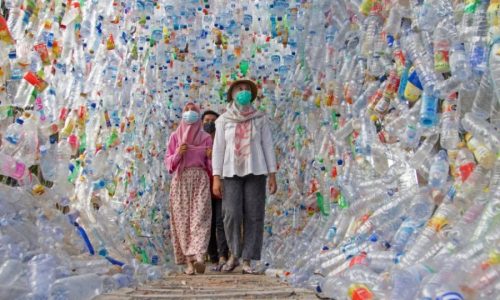Press freedom in Indonesia is currently ranked 108 out of 180 countries, according to a survey from Reporters Without Borders (RSF), an international non-profit organization in the field of research on media freedom.
RSF just released a press freedom index to coincide with World Press Freedom Day on May 3, 2023. According to the RSF, Indonesia is in a bad position. In 2021, Indonesia was in 113th position, while in 2022, Indonesia’s position drops to 117th.
According to RSF, journalists who investigate local corruption cases are more likely to receive various forms of intimidation, arrest, and physical violence. As a result, the level of censorship is very high and has a fatal impact for journalists covering issues ranging from environmental to large personal interests supported by local officials.
On another occasion, the Indonesian Press Council’s Press Freedom Index (Indeks Kemerdekaan Pers – IKP) released in 2022 stated that Indonesia scored 77.88 on the index, 1.86 points higher compared to the previous year. According to the Press Council, in the last five years (2018-2022) the IKP has increased, indicating that the national press is in a state of sufficient freedom to broadcast information and news.
Several provinces with the highest IKP includes, East Kalimantan (83.78), Jambi (83.68), and Central Kalimantan (83.23). While the lowest were West Papua (69.23), North Maluku (69.84), and East Java (72.88).
UU ITE and UU KUHP main culprit
Ika Ningtyas, Secretary General of the Alliance of Independent Journalists (Aliansi Jurnalis Independen – AJI) Indonesia, believed that there are several reasons why the press freedom index has not improved this year even though Indonesia has been in a transitional period towards democracy since 1998. In terms of legislation, the existence of the Indonesian Criminal Code (KUHP) and Law on Information and Electronic Transactions (ITE) contains a number of articles that threaten press freedom and threaten journalists and press companies as perpetrators of criminal acts when carrying out journalistic duties. In addition, there was a blocking of eight platforms at the end of July 2022 which had an impact on the work of journalists.
Meanwhile, attacks on journalists and the media continued to occur. AJI Indonesia recorded a total of 61 cases in 2022, targeting 97 journalists and 14 media organizations. This figure has increased from the previous 43 cases in 2021. In January-April 2023 period, there were already 33 cases of attacks on journalists. This figure has increased from the same period in 2022 which was15 cases.
According to Ningtyas, cases of attacks on journalists often end with impunity. “So, the perpetrators walked free and that sparked further violence,” said Ningtyas on May 2, 2023.
Trends in threats against journalists include threats of being banned from reporting, harassment and prosecution; deletion of coverage; physical abuse; sexual/gender-based violence, digital attacks, and terror and intimidation.
Ningtyas suggested that the government, the Press Council, and various other state institutions should create a holistic protection mechanism for journalists covering all aspects from prevention, protection and law enforcement. “Preventive by socializing the Press Law to all levels of society, all levels of the police, and local governments,” said Ningtyas.
In addition, Ningtyas also hoped that the government and the House of Representatives need to revoke various regulations that impede the performance of journalists. According to Ningtyas, this is why media freedom in Indonesia has not changed much.
Compared to neighboring countries, RSF said, Malaysia has a better ranking at position 73, up 40 ranks from the previous year. Meanwhile, Timor Leste is in 10th position. However, what makes the neighboring country’s position better is the absence of the ITE Law or the Criminal Code and from a security perspective there are rarely cases of violence, detention and killing of journalists. “From a legislative aspect in Timor Leste, there are also no laws or regulations that limit the ITE Law or the Criminal Code like in Indonesia,” added Ningtyas.
“Not only does it threaten and injure press freedom, but it is also dangerous for democracy, freedom of religion and belief, and eradication of corruption,” wrote Arif Zulkifli, Chair of the Law and Legislation Commission of the Press Council in December 8, 2022.








